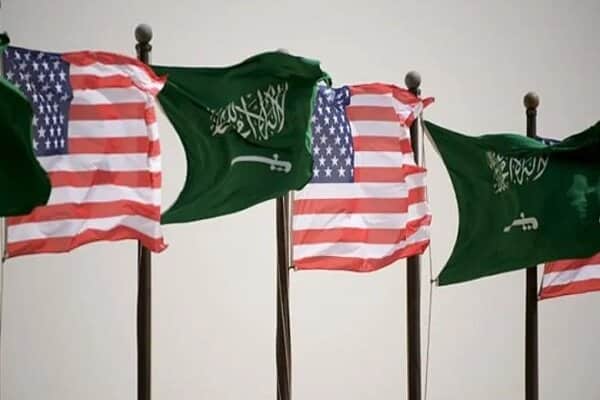Negotiations between the United States and Saudi Arabia to sign a defense pact.
The traditional and strategic alliance between Riyadh and Washington has continued until now despite numerous challenges and fluctuations. This alliance, which had been shaken during the second term of Obama’s presidency, under the influence of factors such as the look-to-the-east policy and the reduction of American intervention in the West Asian region, was strengthened again with Trump’s assumption of the presidency, but some time later, after the disagreement between Saudi Arabia and the United States. Regarding the amount of oil production, it was doubted. The reduction of the presence of American forces and the removal of the Patriot missile system from Saudi Arabia based on Biden’s new strategy also led to the dissatisfaction of the Saudis.
The increase in differences between Washington and Riyadh and the rupture of the 80-year alliance, especially after the policy of focusing on the East and the US withdrawal from Afghanistan, led to a change in the attitude of the Saudi authorities towards Riyadh’s foreign relations with Washington. For this reason, the Saudi authorities have shifted from the policy of unilateral relations with the United States to multipolar relations with rival countries of the United States, including Russia and China.
China’s signing of economic contracts with Saudi Arabia, along with the development of security cooperation, has led Washington to the conclusion that it must maintain its traditional base. In addition, Russia has strengthened its economic and security cooperation with Saudi Arabia in the last two years, especially since the start of the Ukraine war. Meanwhile, the alliance between China and Russia in the Persian Gulf is considered a serious threat to the interests of the West.
This has caused concern in Washington; Therefore, over the past year, the Biden government has tried to fill the gap created in relations with Riyadh and show that it still has a strong presence in the Persian Gulf region. The signing of the security agreement between Washington and Manama in recent days can be analyzed and evaluated in this regard. Many media have announced that the Biden administration wants to use the strategic agreement with Bahrain as a framework for similar agreements with other countries in the region, including Saudi Arabia. In fact, by signing a security agreement with Manama, Washington wants to show that it has no intention of leaving the Persian Gulf region and is a kind of signal to the Saudis and other Arab countries that despite the conflict in Ukraine, Washington can still defend its Arab allies.
Meanwhile, despite Saudi Arabia’s broad desire to sign a defense pact with the United States of America, Riyadh wants a more formal agreement with higher guarantees than the example of the Bahrain pact. Although Bahrain is a key ally of the United States in the Persian Gulf and the US Navy’s Fifth Fleet is based in Bahrain, the recent security agreement does not provide the guarantees of Clause V of the NATO Treaty, which states that any attack on one member of the alliance is an attack on all members. It is. In fact, the recent security agreement does not mean any attack on Bahrain as an attack on America; Rather, it means preventing threats, and in the event of an attack on Bahrain, Washington is committed to immediately consulting with its ally and examining ways to respond.

